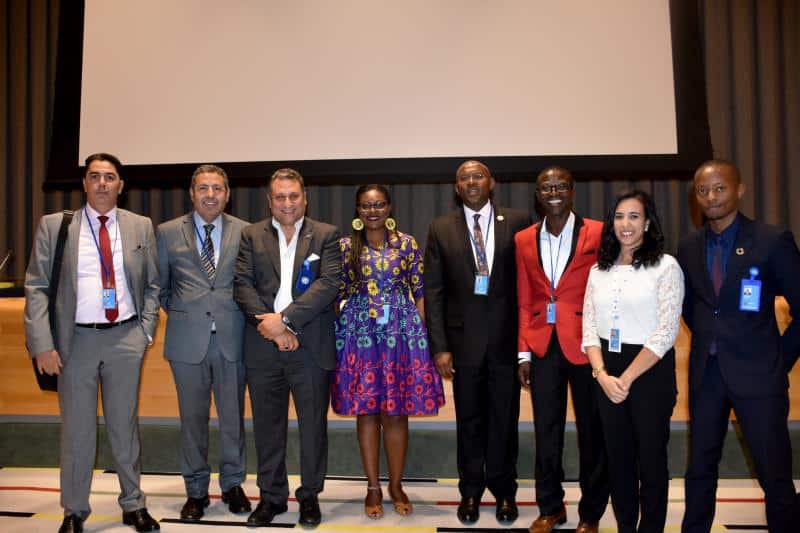On the sidelines of the high-level policy forum in New York
Maat holds a symposium on the green economy in Africa
Akil: The international community has become aware of the seriousness of the environmental situation
New York.18 July 2018
At the United Nations headquarters in New York, the Maat Foundation for Peace, Development and Human Rights, in cooperation with the Citizens and Expatriates Administration of the African Union and the Economic, Social and Cultural Council of the African Union, held a side event on the sidelines of the high-level political forum entitled “The African Union's Agenda 2063 and the Sustainable Development Goals: The Relationship between the Blue and Green Economy in Africa “
The symposium opened with a speech by Ambassador Jalal Shalaba, Head of the Civil Society Department at the Economic, Social and Cultural Council of the African Union, who emphasized the importance of the role of the African Union in achieving sustainable development and also indicated that Africa is going through a promising period and exploring ways in which new ways can be found to enhance the performance of Africa. Towards achieving the aspirations of Agenda 2063 and the 2030 Agenda for Sustainable Development.
Mr. Ayman Aqil, President of Maat Foundation, spoke at the symposium and indicated in his speech that the thing that distinguishes the high-level policy forum for the year 2018 is that most of its goals focus on preserving the environment, and this indicates that the international community has become aware of the seriousness of the environmental situation on the whole world. Shedding light on the environmental and economic situation in Africa, which has suffered a lot over the past years and its wealth was plundered, is extremely important, and he indicated that the 2030 Agenda and 2063 together address a set of political, economic, social and environmental challenges facing Africa.
During the symposium, Mr. Samuel Dutzi from Ghana, a climate change expert and member of the General Assembly of the Economic, Social and Cultural Council of the African Union also spoke during the seminar and gave a detailed presentation on the status of the green and blue economy and defined it as this type of economy that aims for profit but also preserves the environment, the expert revealed Ghanaian reported that agriculture has long been the backbone of African economies. But agricultural development requires extensive water supplies, as statistics indicate that 64% of Africans depend on limited and highly variable water, 25% of Africa's population is water stressed and 96% of Africa's agriculture depends on rainwater, and water allocations to the agricultural sector remain extremely low - well below the 10% recommended by the Maputo Protocol.
Mr. Christian Clonzo, head of the research team at the African Platform Organization, also spoke about the importance of setting the sustainable development agenda 2030 and 2063 as a basic vision for all African countries and shared some of his experiences in the field of green economy and stressed that achieving profits and preserving the environment are not contradictory matters, but rather the opposite if Investors and businessmen want to achieve greater profits in the long run. They must work to preserve the environment and develop the resources available to them.
The seminar was moderated by Mr. Richard Swakeryang, President of the Economic, Social and Cultural Council, where he stressed the importance of government, civil society and private sector cooperation, as he referred to the achievement of positive steps on the African continent towards the 2030 and 2063 agenda, but the continent still faces several challenges that it must work hard. To overcome it. In addition, he referred to the environmental risks facing the whole world now and that to bypass these risks, officials and stakeholders have to promote the green economy more so that financial gains can be achieved and the environment is preserved at the same time.
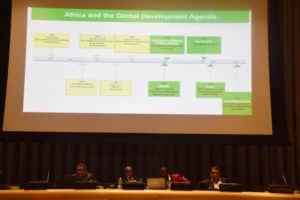
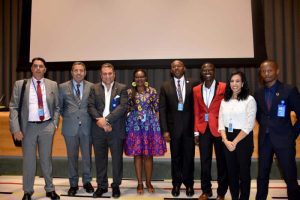
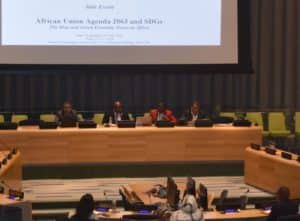
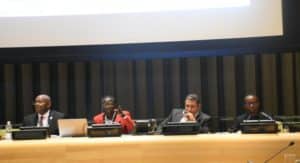
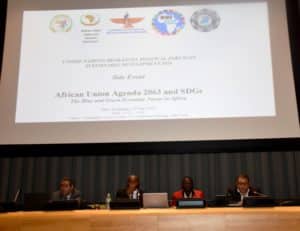
shortlink: https://maatpeace.org/en/?p=24016


